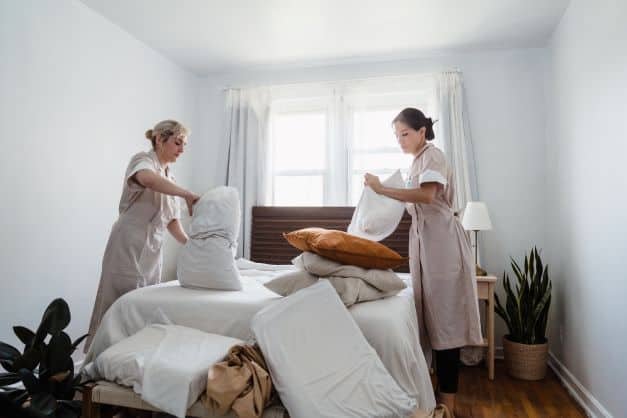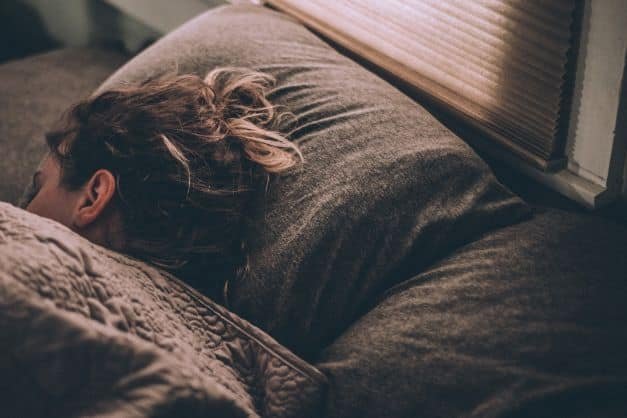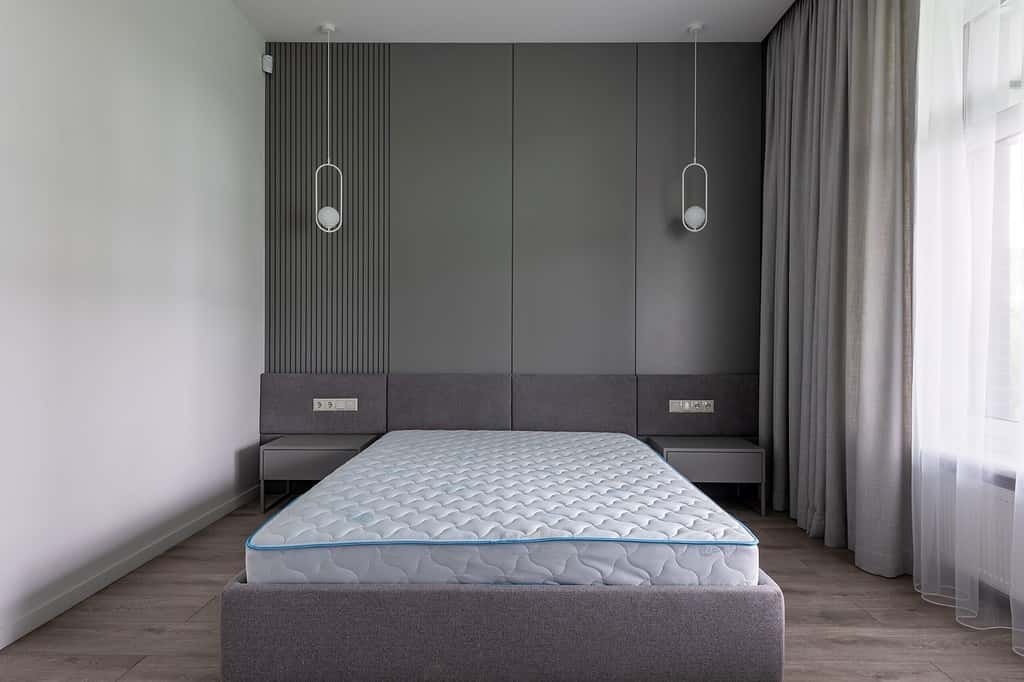The Importance of Sleep Hygiene
You’ve probably never thought of your sleep habits as “hygiene,” but they are. Just like brushing your teeth or taking a shower, practising good sleep hygiene can help you wake feeling refreshed and well-rested. The quality of your sleep has a significant impact on your physical and mental health. Poor sleep can lead to health problems such as obesity, heart disease, and diabetes. It can also affect your mood, memory, and concentration.
What is sleep hygiene?
Many people think good sleep hygiene means going to bed early, having a good mattress, exercising enough, and ensuring your bedroom is dark and quiet. While these things can help you sleep better, they only address part of the picture. Proper sleep hygiene is much more than just those simple steps. It’s a set of habits you can develop over time that will help you get more restorative shuteye every night.
How much sleep do you need?
The first step in improving your sleep and modifying your sleep hygiene is understanding how much sleep you need. Figuring out this number is essential because getting more than the recommended amount of sleep isn’t always better. Some studies suggest that too much sleep can adversely affect your health, including a higher risk for diabetes and heart disease. Additionally, it’s not just about the number of hours you sleep; it’s also essential to look at the quality of those hours.
You might be thinking, “What do I care about quality? As long as I get enough hours of sleep, I am good to go!” but that couldn’t be farther from the truth. Sleep deprivation can cause serious problems; in some instances, people who attempt to operate heavy machinery while extremely fatigued have caused accidents resulting in death or injury. On top of this, several studies have shown that people who don’t get enough sleep are more likely to gain weight. Simply put: poor quality of sleep affects all aspects of your health—physical, mental and emotional.
Why is sleep so important?
Being well-rested is one of the most critical components of good health. When we sleep, our bodies rest and recover from all the activities we do during the day. This is especially true for young people and growing children, whose bodies need proper rest to develop correctly. Sleep helps us focus and remember things more clearly; paying attention or completing a task is more arduous when tired.
Finally, years of research show that getting enough sleep can help prevent serious health problems in adulthood. Sleep helps regulate our body temperature and repair cell damage—all necessary processes to feel your best every day!
What happens during sleep
When you fall asleep, your brain goes through a series of changes. First, it becomes less responsive to external stimuli; this is why waking you up is so hard if you’re deep in sleep. Your heart rate and breathing slow down as well. You’ll move from the lightest stages of sleep (stage 1) into deeper stages (stages 3 and 4). After about 90 minutes, you’ll begin returning to stage 1, where you’ll spend most of your time until morning.
Sleep is important because our bodies need this time to rest and repair themselves. It’s when we consolidate our memories, maintain our immune systems and regulate our temperature and appetite. Sleep also helps us grow—the hormone responsible for stimulating growth in children is released during the deepest stages of sleep!
Nurture your circadian rhythm
The brain responds to light and darkness, temperature, and activity. It is why you feel tired later at night and wake up during the day. The brain needs to know what time it is to function correctly. The best way for your brain to know what time it is is through natural light entering your eyes.
Work out when it suits you best
Many people find that their sleep habits improve when they exercise regularly, and science backs up this claim. However, you don’t want to exercise too close to bedtime. Late-night exercise can increase arousal and make it difficult to fall asleep. Exercising when tired or overheated can also interfere with falling asleep. Finally, taking a break from your regular workout routine may be best for you (and your sleep) if you are sick or injured.
Avoid excess caffeine or energy drinks
Although caffeine is a stimulant, it can make it harder to fall asleep. You don’t need to avoid caffeine altogether, but limiting your drink amount is essential. Caffeine stays in your system for up to ten hours after drinking it. Therefore, consuming caffeine (incredibly late in the day) can prevent you from falling or staying asleep. If you drink caffeinated beverages like coffee or tea, try not to have any during the afternoon or evening.
Alcohol and a nightcap
Alcohol can have a negative effect on your sleep. This is because drinking alcohol makes it easier to fall asleep and may make you sleepy initially. Still, when the body metabolises alcohol, it has an alerting effect. This results in waking up frequently throughout the night and, ultimately, poor sleep quality. If you want to get a good night’s sleep, it is best to avoid alcohol if possible. If you drink alcoholic beverages, limit yourself to one drink, and have it early in the evening.
Nicotine and late-night snacks
Nicotine is a stimulant and can keep you from falling asleep. If you smoke before bed, your body will want to stay awake as it tries to process the nicotine. Nicotine is also why smokers often wake up earlier than they’d like. When your blood level of nicotine drops overnight, your body may crave another dose and wake you up early so you can have a cigarette.
Eating heavy snacks before bedtime can also make it harder to fall asleep and stay asleep. Rich foods take time to digest, making it harder for the body to relax while lying at night. This causes sleep disruptions throughout the night.
Limit screen time before bedtime
Limiting screen time before bedtime is one of the best things you can do to improve your sleep hygiene. The blue light emitted by smartphones and tablets disrupts our circadian rhythms, making it much harder to fall asleep at a reasonable hour. If you’re having trouble falling asleep, pre-bed reading on a screen could be the culprit. Try limiting your screen time for an hour or two before bed until you’ve had a chance to adjust to it.
Prepare for sleep in every way you can.
As anyone can tell, it feels nearly impossible to sleep when stressed. As a result, your body will release hormones that keep you awake. To avoid stress before bedtime, take some time each day to get away from any stressful situations that may be going on in your life. This could range from simply taking a warm bath or walking to more organised activities such as yoga or meditation. The goal is not necessarily to relax but rather to reduce the tension and anxiety you may have built up throughout the day.
Not only does sleep help us rest, but it helps our minds focus and recover from the day
In addition to providing a much-needed opportunity for our bodies to rest, sleep is essential in helping us focus and recover from the day. Sleep deprivation leads to impaired cognitive function and can even change how our brains process information. It also has far-reaching effects on our ability to learn: sleep helps the brain form connections that make it possible for us to remember new information.
So next time you want to binge-watch that show your friends can’t stop talking about, try going to bed early instead! You’ll be well-rested when you wake up and ready to face whatever comes your way.
Final Thoughts
Sleep is crucial for our health and well-being, yet many don’t get enough. By following good sleep hygiene habits, we can improve our sleep quality and quantity, which will help us feel our best during the day. We can do many things to improve our sleep hygiene, including avoiding caffeine and nicotine before bedtime, limiting screen time, and preparing for sleep in every way possible. By following these simple tips, we can get the most out of our sleep and improve our overall health.



